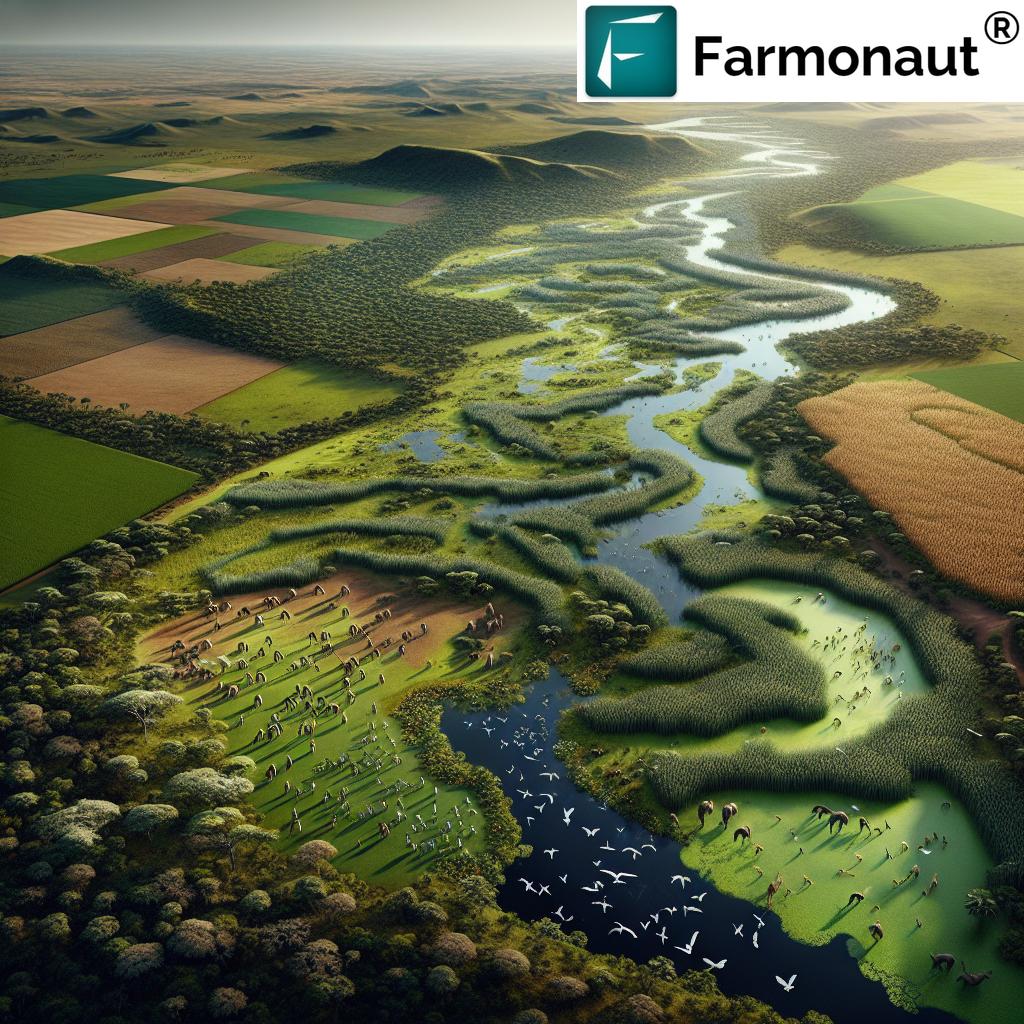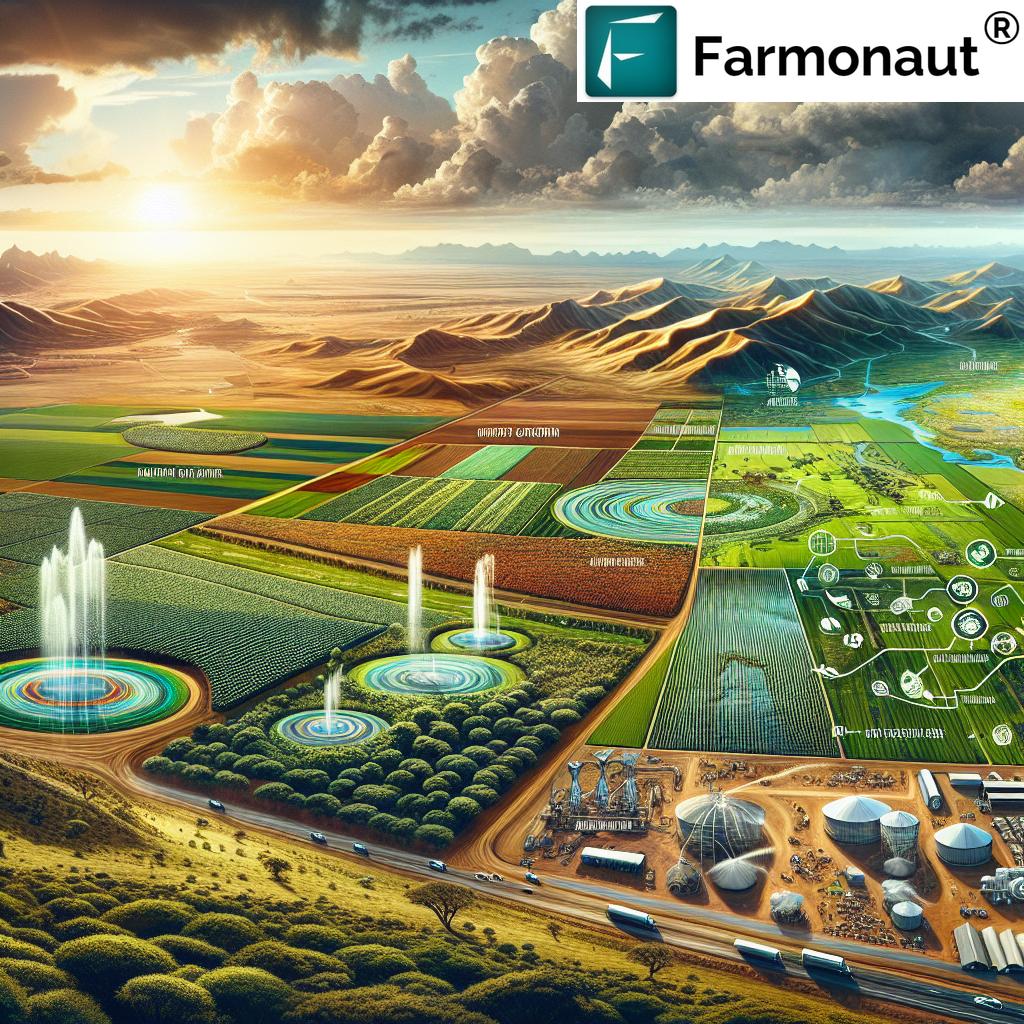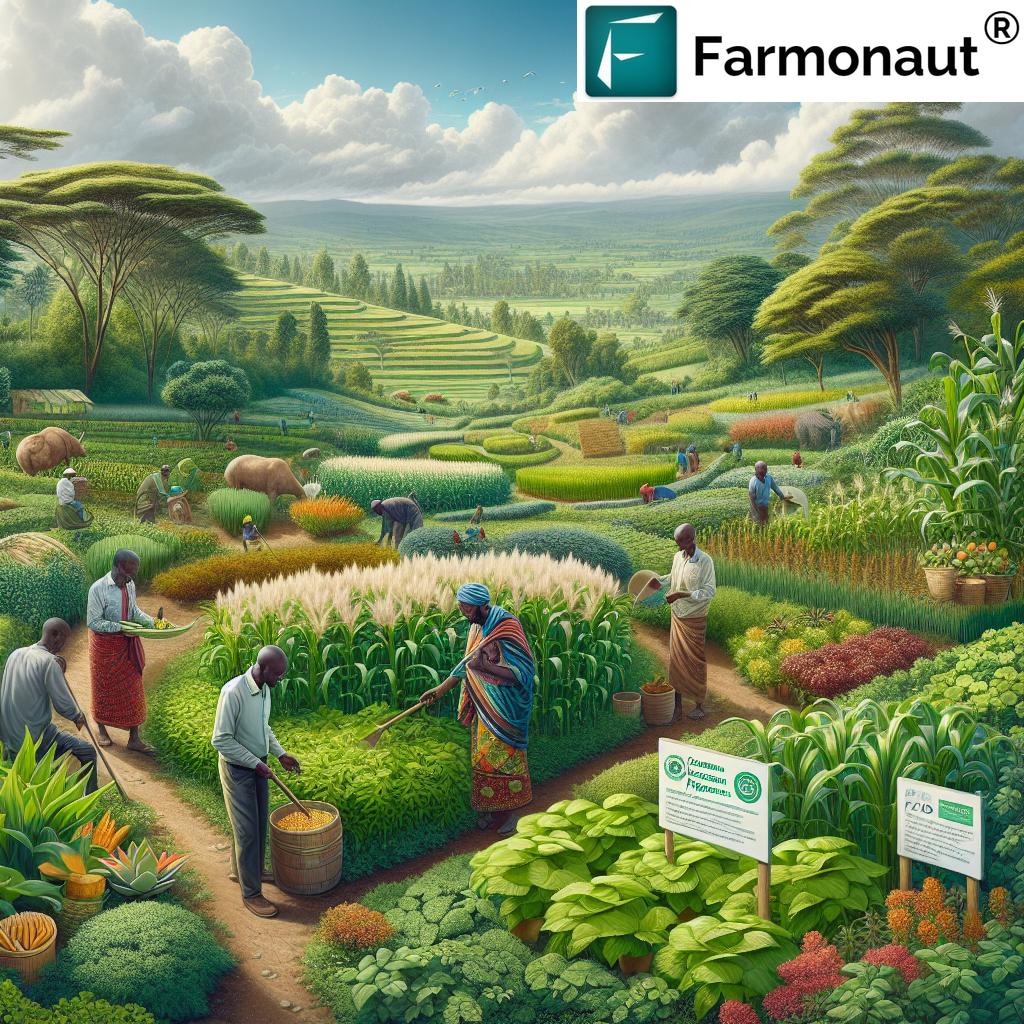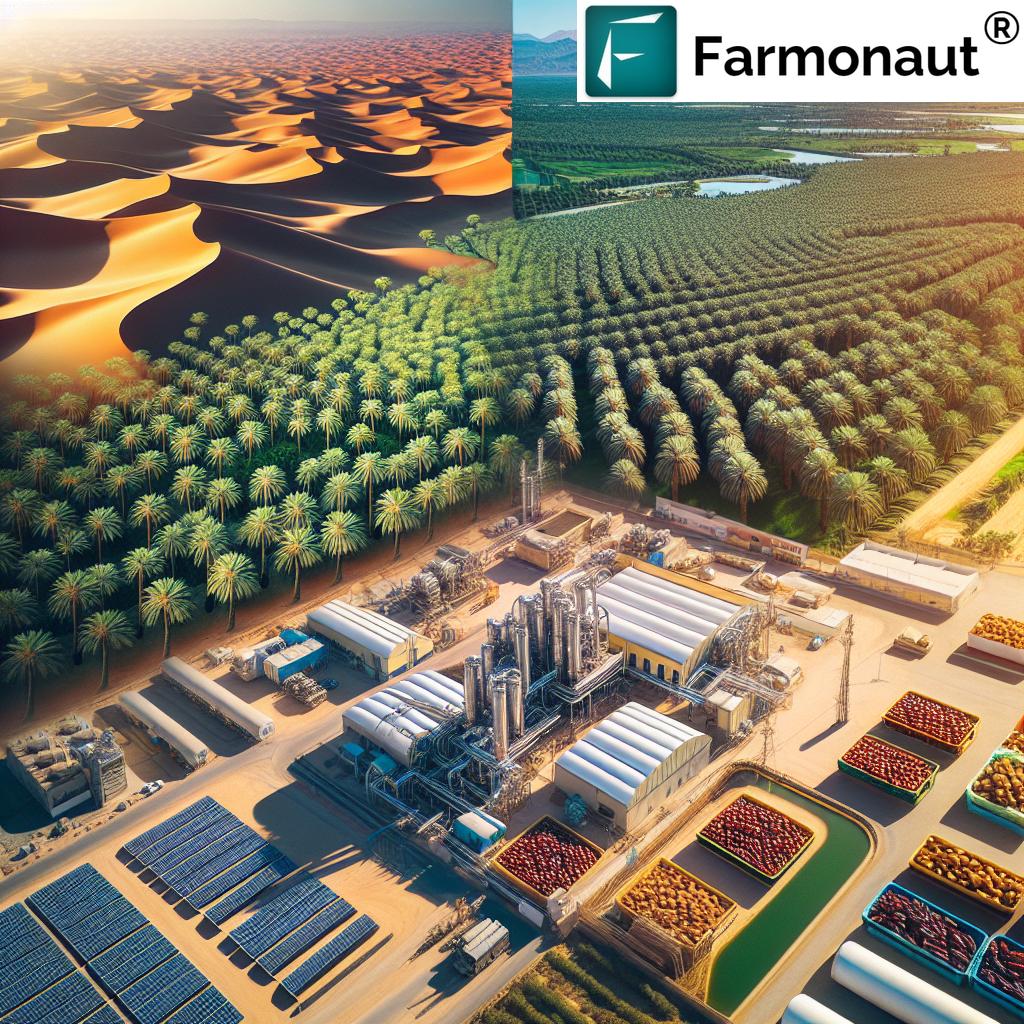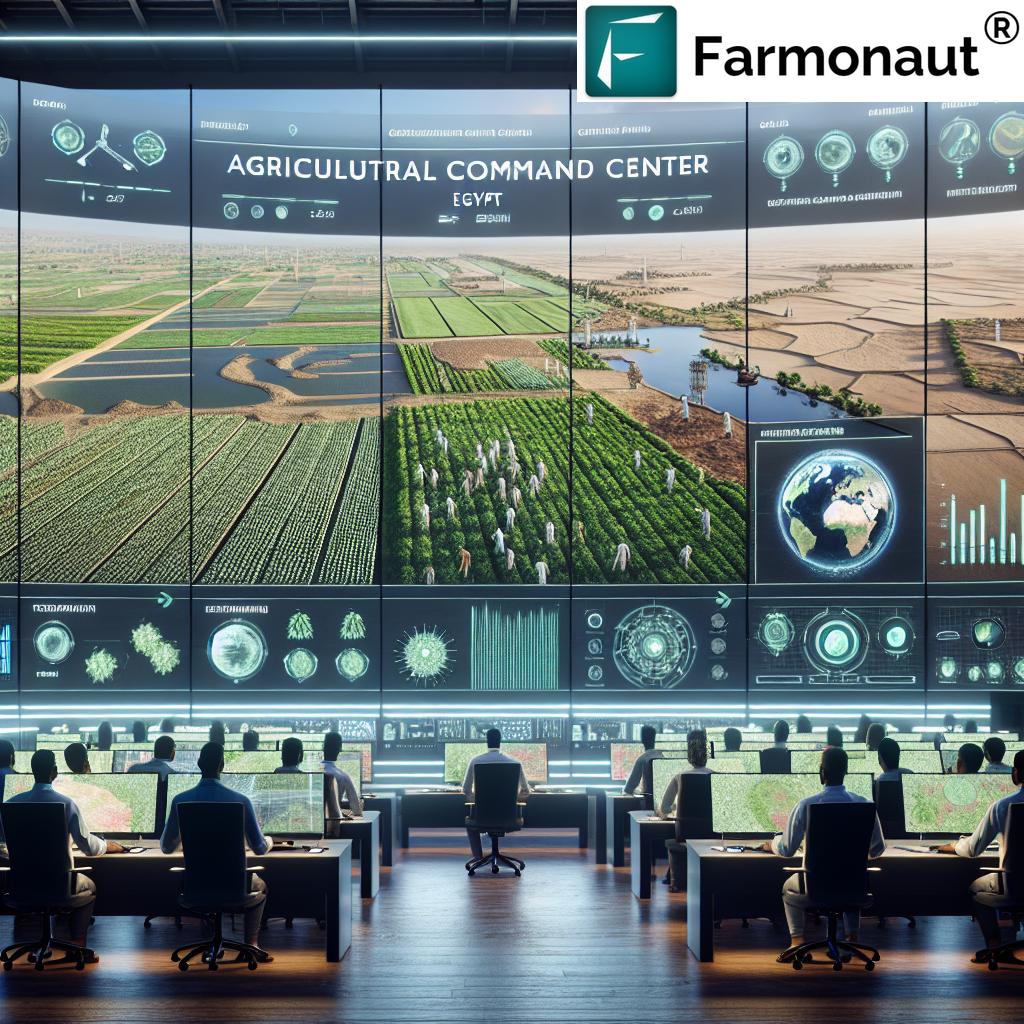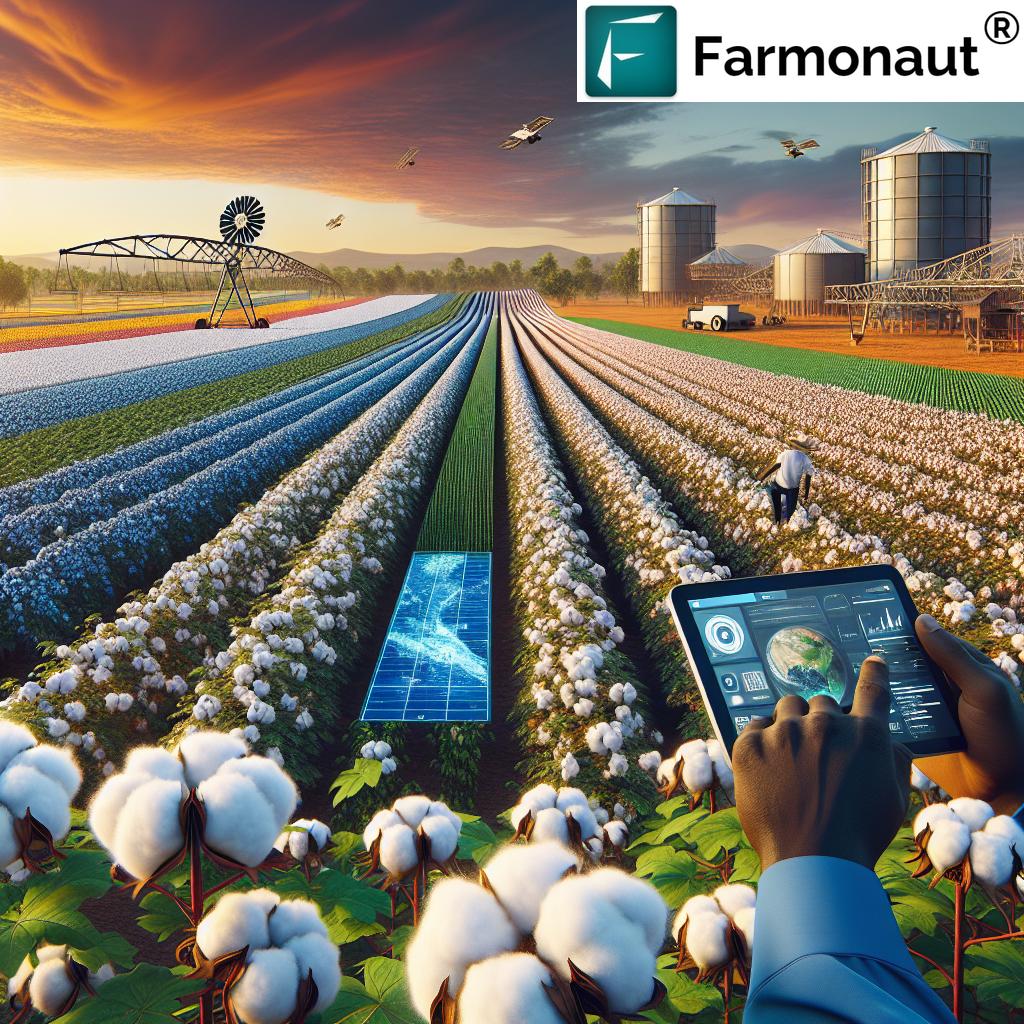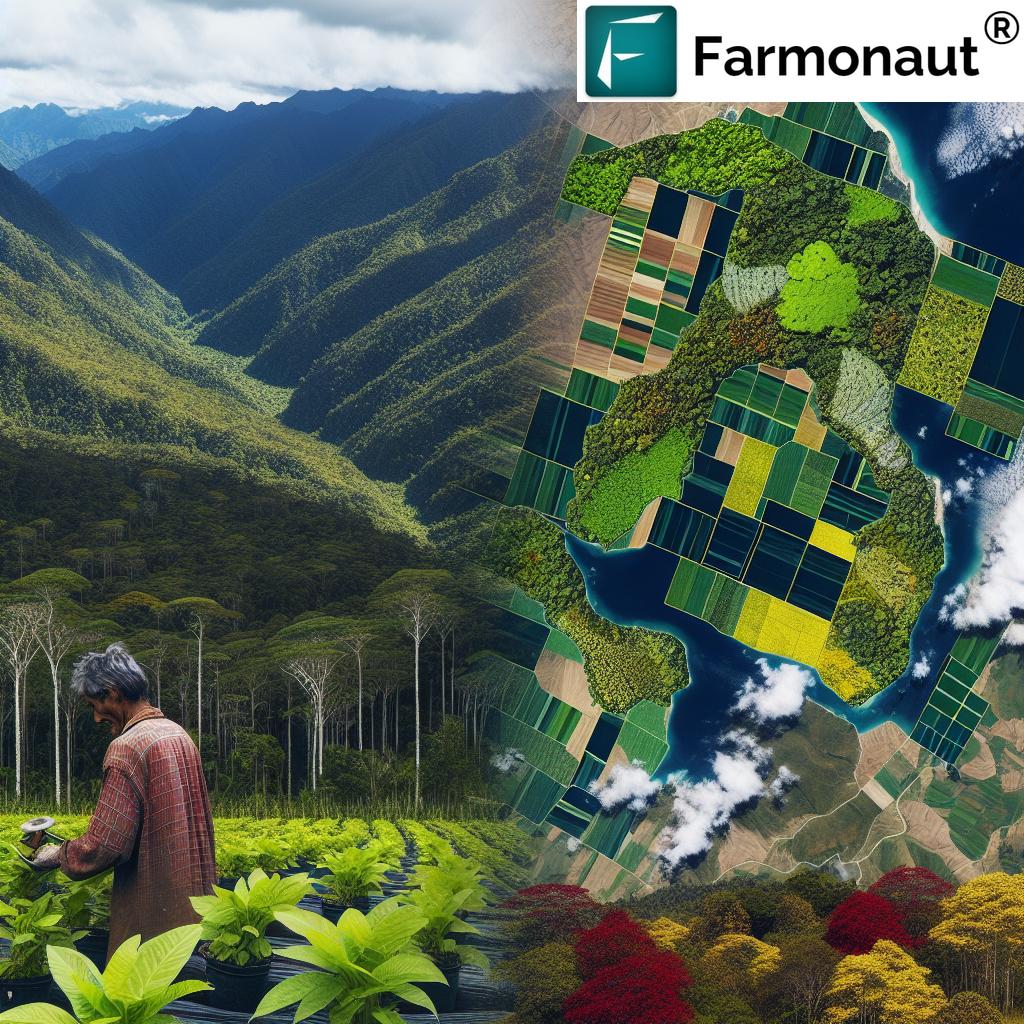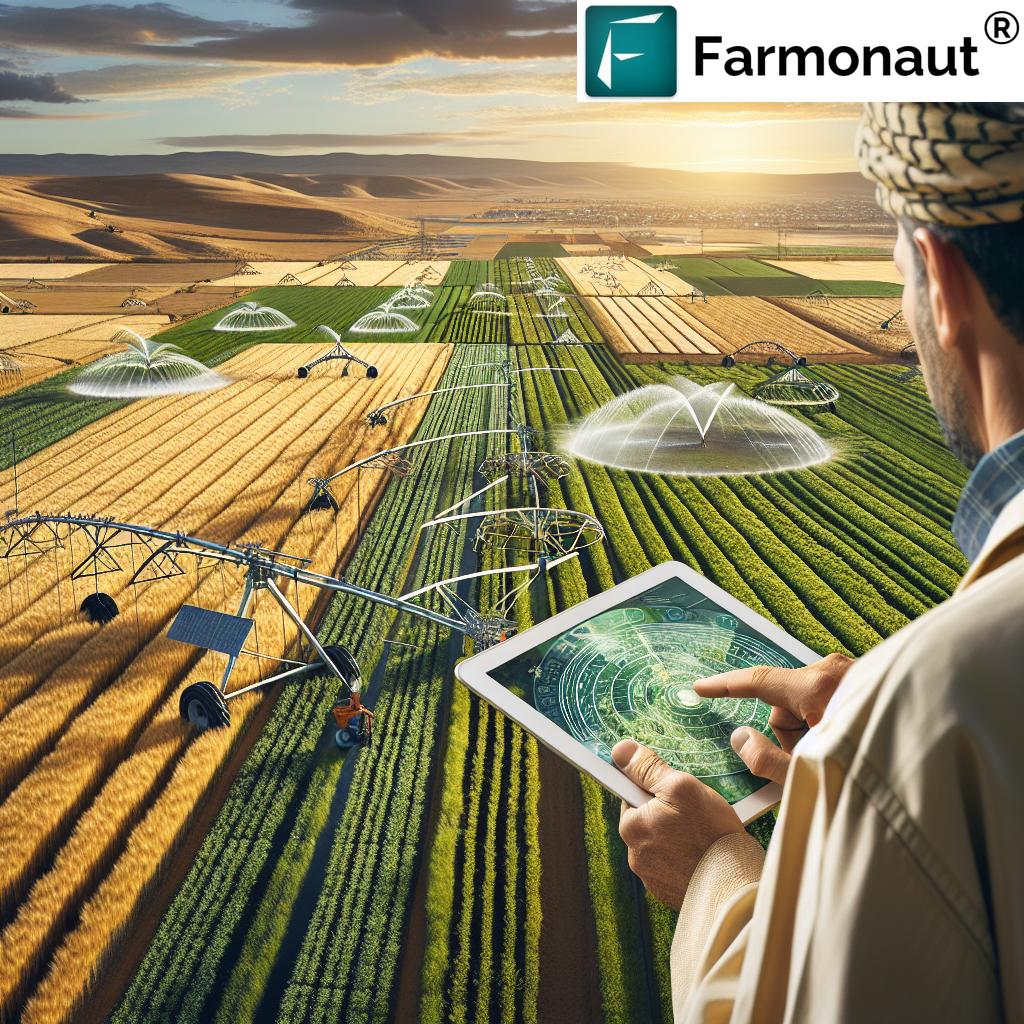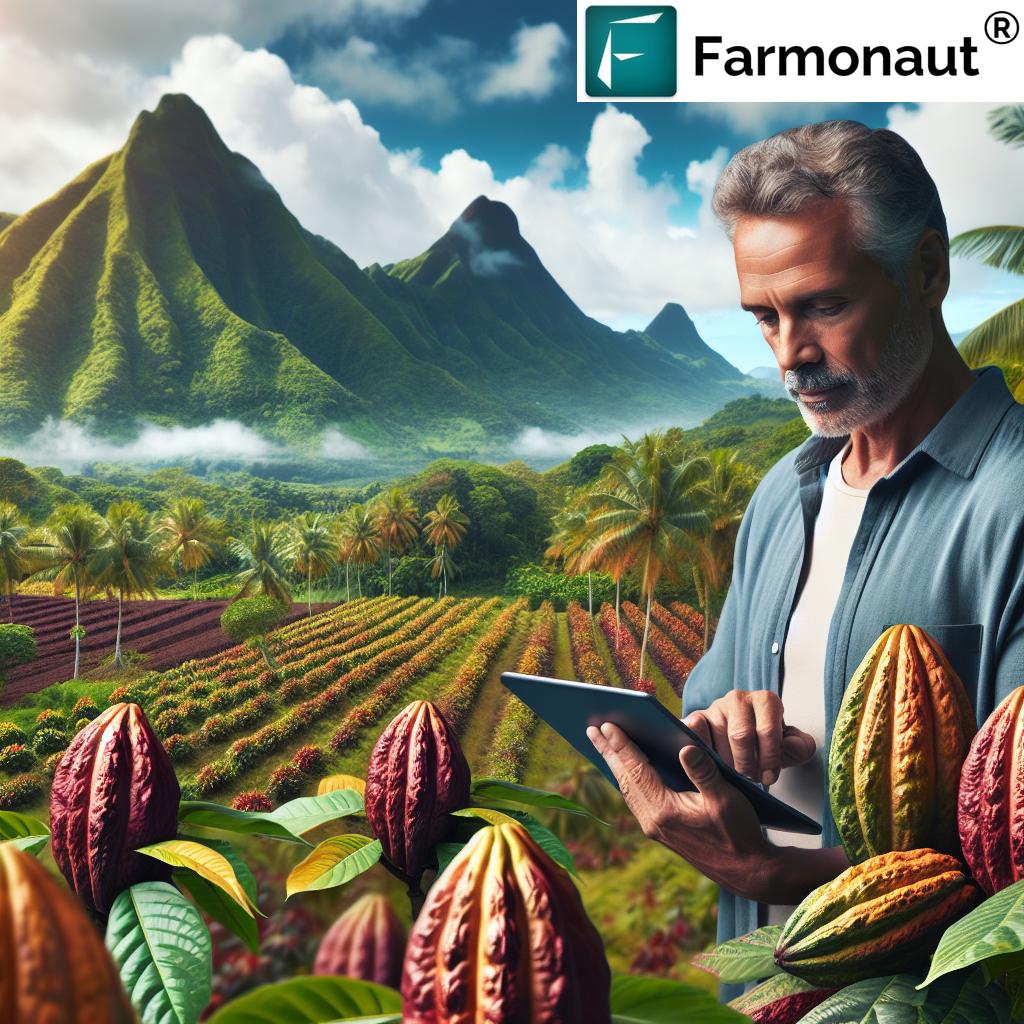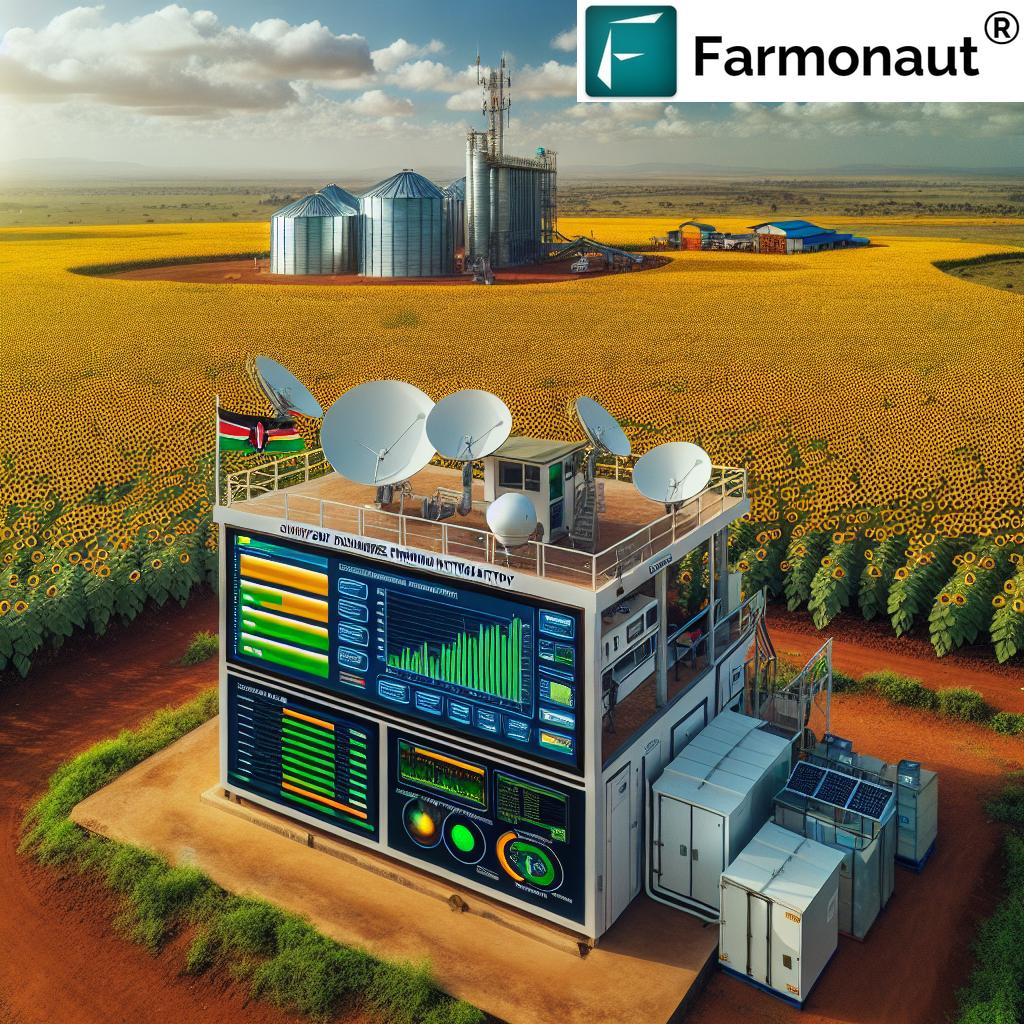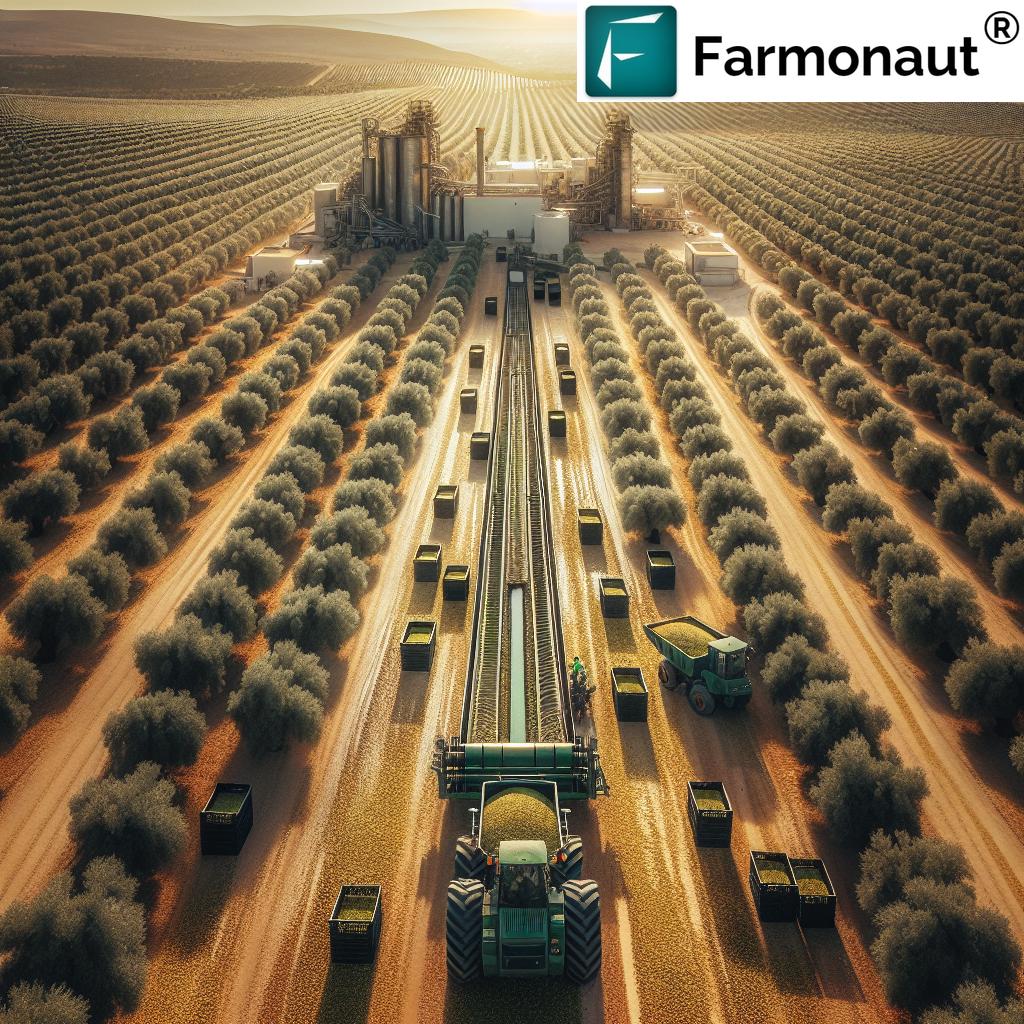Revolutionizing Global Agriculture: Dutch Innovations and Sustainable Farming Practices in Ukraine and Ethiopia
“The Netherlands’ agricultural exports reached €95.6 billion in 2021, making it the world’s second-largest exporter of agricultural products.”
Welcome to our comprehensive exploration of international agriculture trends and sustainable farming practices that are reshaping the global agribusiness landscape. In this blog post, we’ll delve into the heart of agricultural technology innovations, focusing on the Netherlands, Ukraine, and Ethiopia. We’ll examine how Dutch agricultural exports, precision agriculture solutions, and smart farming techniques are revolutionizing the industry worldwide.
As we navigate through this fascinating journey, we’ll uncover the latest developments in crop monitoring satellite technology, sustainable crop management, and the rise of agtech startups. Our goal is to provide you with valuable insights into how the agricultural sector is adapting to global challenges and leveraging technology for sustainable growth.
The Dutch Agricultural Revolution: A Model for Global Innovation
The Netherlands has long been at the forefront of agricultural innovation, and its impact on global farming practices cannot be overstated. Despite its small size, the country has become a powerhouse in agricultural exports, second only to the United States. This remarkable achievement is the result of decades of investment in sustainable farming practices, cutting-edge technology, and efficient resource management.
- Precision agriculture adoption
- Greenhouse technology
- Water management systems
- Sustainable pest control methods
Dutch farmers have embraced precision agriculture techniques, utilizing advanced sensors, GPS technology, and data analytics to optimize crop yields while minimizing resource use. This approach has not only increased productivity but also significantly reduced the environmental impact of farming activities.
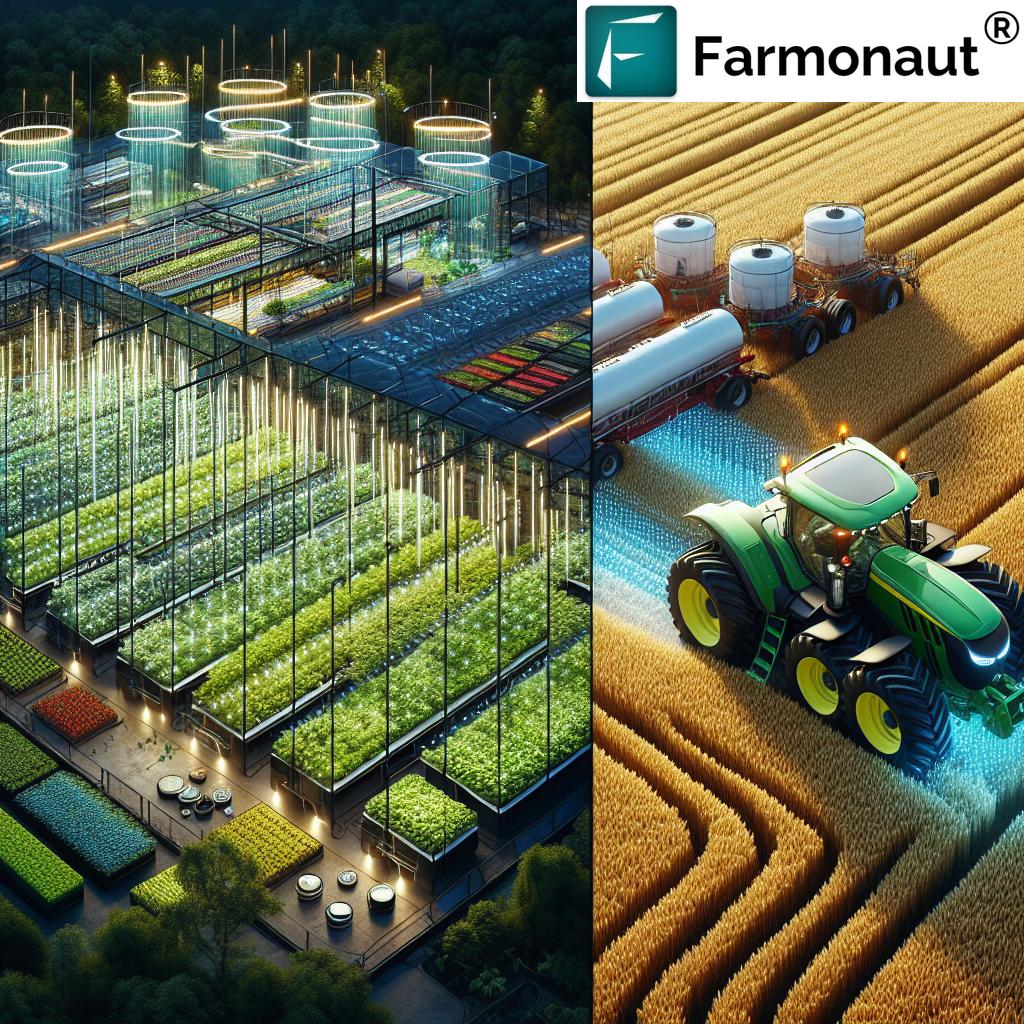
One of the key factors behind the Netherlands’ success is its world-renowned greenhouse technology. These high-tech facilities allow for year-round cultivation of various crops, regardless of external weather conditions. By controlling temperature, humidity, and light levels, Dutch greenhouse operators can produce high-quality fruits and vegetables with minimal water and pesticide use.
Ukraine: Embracing Agricultural Technology for a Brighter Future
Ukraine, often referred to as the “breadbasket of Europe,” is undergoing a significant transformation in its agricultural sector. With vast expanses of fertile land, the country has immense potential to become a global leader in sustainable farming practices. In recent years, Ukrainian farmers have been increasingly adopting precision agriculture solutions and smart farming techniques to boost productivity and reduce environmental impact.
- Adoption of satellite-based crop monitoring
- Implementation of smart irrigation systems
- Use of drones for field mapping and crop analysis
- Integration of IoT devices in farm management
One of the most significant advancements in Ukrainian agriculture has been the widespread adoption of satellite-based crop monitoring systems. These technologies allow farmers to track crop health, detect potential issues early, and make data-driven decisions about irrigation, fertilization, and pest control.
At Farmonaut, we’re proud to contribute to this technological revolution by offering advanced satellite-based farm management solutions. Our platform provides real-time crop health monitoring, AI-based advisory systems, and resource management tools, empowering Ukrainian farmers to make informed decisions and optimize their operations.
Explore our cutting-edge solutions:
Ethiopia: Harnessing Technology for Sustainable Agriculture
Ethiopia, with its diverse climate and growing population, faces unique challenges in its agricultural sector. However, the country is making significant strides in adopting sustainable farming practices and leveraging technology to improve food security and rural livelihoods.
- Implementation of climate-smart agriculture techniques
- Adoption of drought-resistant crop varieties
- Use of mobile apps for agricultural extension services
- Development of smallholder irrigation schemes
Ethiopian farmers are increasingly turning to climate-smart agriculture techniques to adapt to changing weather patterns and improve resilience. These methods include conservation tillage, crop rotation, and agroforestry, which help to conserve soil moisture, improve soil fertility, and increase biodiversity.
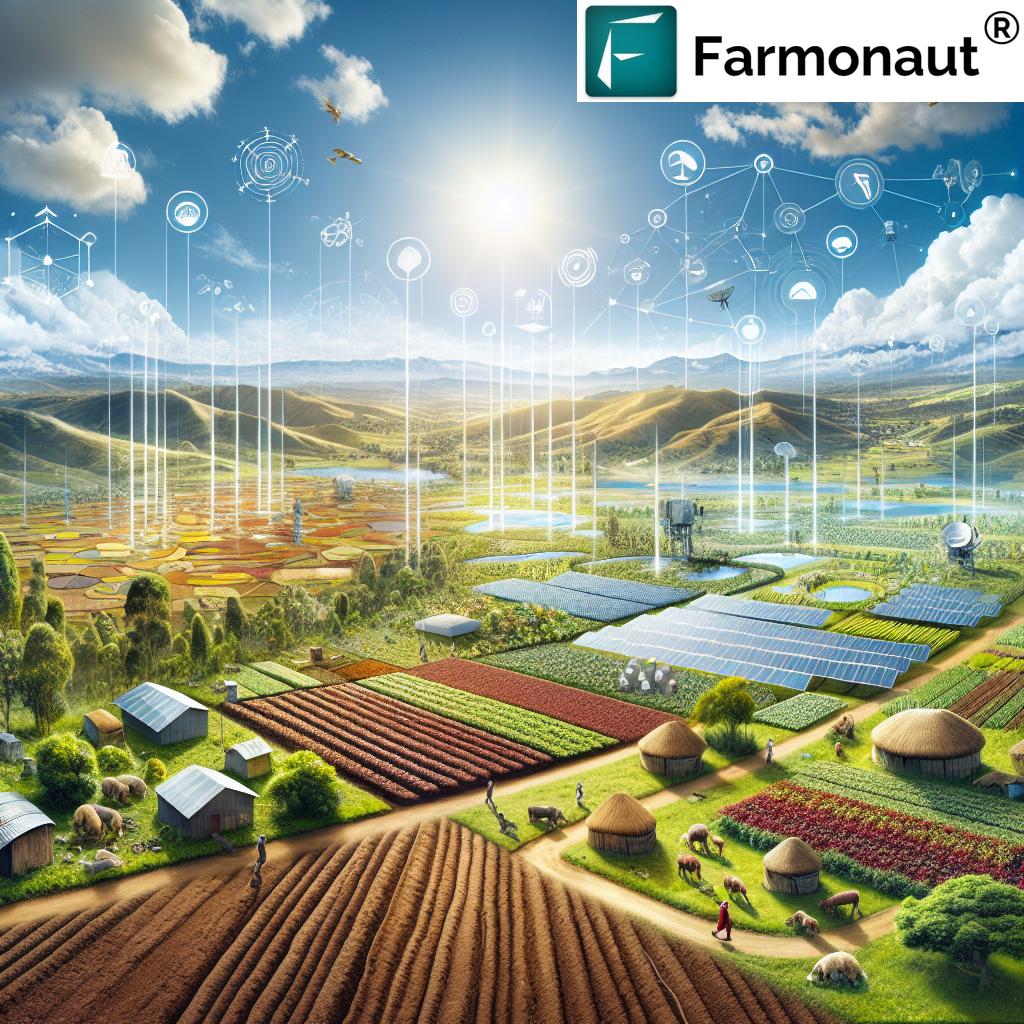
The adoption of drought-resistant crop varieties has been crucial in improving food security in Ethiopia’s arid and semi-arid regions. These crops, developed through both traditional breeding methods and modern biotechnology, can thrive in water-scarce conditions, ensuring more stable yields even in challenging environments.
Global Agribusiness Opportunities: Bridging Innovation Across Borders
“A searchable database of 1,484 documents covers diverse topics like crop monitoring satellite technology and smart farming techniques.”
As we examine the agricultural landscapes of the Netherlands, Ukraine, and Ethiopia, it becomes clear that there are tremendous opportunities for cross-pollination of ideas and technologies. Global agribusiness is increasingly interconnected, with innovations from one region quickly spreading to others, adapted to local conditions and needs.
- Knowledge transfer and capacity building
- International collaborations in agtech research
- Cross-border investment in agricultural startups
- Harmonization of agricultural standards and practices
One of the most exciting developments in global agriculture is the rise of agtech startups. These innovative companies are developing solutions to some of the most pressing challenges in farming, from water scarcity to pest management. The Netherlands, in particular, has become a hub for agtech innovation, with numerous startups emerging from its world-class universities and research institutions.
At Farmonaut, we’re committed to fostering innovation and collaboration in the agricultural sector. Our API allows developers and businesses to integrate our satellite and weather data into their own systems, encouraging the development of new solutions and applications for farmers worldwide.
Explore our API capabilities:
Farmonaut API
API Developer Docs
Sustainable Crop Management: A Global Imperative
As we confront the challenges of climate change and population growth, sustainable crop management has become more critical than ever. Farmers around the world are adopting practices that not only increase yields but also preserve soil health, conserve water, and reduce greenhouse gas emissions.
- Integrated pest management (IPM)
- Precision fertilizer application
- Cover cropping and crop rotation
- Conservation tillage
Integrated pest management (IPM) is a holistic approach to pest control that combines biological, cultural, physical, and chemical tools to minimize economic, health, and environmental risks. This strategy has been widely adopted in the Netherlands and is gaining traction in countries like Ukraine and Ethiopia.
Precision fertilizer application is another key aspect of sustainable crop management. By using soil testing, remote sensing, and variable rate technology, farmers can apply fertilizers only where and when they are needed, reducing waste and environmental impact. This approach has been particularly successful in the Netherlands and is being increasingly adopted in Ukraine’s large-scale farming operations.
The Role of Satellite Technology in Modern Agriculture
Satellite technology has revolutionized the way we monitor and manage agricultural land. From crop health assessment to yield prediction, satellites provide valuable data that helps farmers make informed decisions and optimize their operations.
- Vegetation indices (e.g., NDVI) for crop health monitoring
- Soil moisture estimation
- Crop area and yield estimation
- Early warning systems for drought and other weather-related risks
At Farmonaut, we leverage cutting-edge satellite technology to provide farmers with real-time insights into their crops. Our platform uses multispectral satellite images to monitor crop health, providing valuable information on vegetation health, soil moisture levels, and other critical metrics.
This technology is particularly valuable in countries like Ukraine and Ethiopia, where large-scale farming operations can benefit from comprehensive, real-time data on crop conditions across vast areas. By identifying potential issues early, farmers can take proactive measures to protect their crops and maximize yields.
The Future of Global Agriculture: Trends and Predictions
As we look to the future of global agriculture, several key trends are emerging that will shape the industry in the coming years:
- Increased adoption of vertical farming and urban agriculture
- Development of AI-powered decision support systems for farmers
- Growth of regenerative agriculture practices
- Expansion of precision agriculture to smallholder farms
Vertical farming and urban agriculture are gaining traction, particularly in densely populated areas. These innovative approaches allow for year-round production of fresh produce close to urban centers, reducing transportation costs and carbon emissions. The Netherlands is at the forefront of this trend, with numerous successful vertical farming operations already in place.
AI-powered decision support systems, like Farmonaut’s Jeevn AI, are set to revolutionize farm management. These systems analyze vast amounts of data from various sources, including satellites, weather stations, and IoT devices, to provide personalized recommendations to farmers. As these technologies become more sophisticated and accessible, we expect to see widespread adoption across the globe.
Global Agricultural Innovation Comparison
| Country | Major Agricultural Exports | Precision Agriculture Adoption (%) | Sustainable Farming Practices | AgTech Startups (Est. Number) | Crop Monitoring Satellite Usage (%) | Smart Farming Techniques | Agricultural Challenges | Recent Technological Advancements |
|---|---|---|---|---|---|---|---|---|
| Netherlands | Flowers, dairy, meat, vegetables | 90% | Greenhouse tech, water recycling | 500+ | 95% | IoT sensors, AI-driven climate control | Land scarcity, emissions reduction | Vertical farming, robotics in horticulture |
| Ukraine | Grains, oilseeds, poultry | 40% | Conservation tillage, crop rotation | 100+ | 60% | Drone mapping, variable rate application | Soil degradation, infrastructure | Big data analytics, smart irrigation |
| Ethiopia | Coffee, oilseeds, pulses | 10% | Agroforestry, terracing | 50+ | 20% | Mobile advisory apps, solar irrigation | Climate variability, smallholder access to tech | Drought-resistant crops, digital marketplaces |
Conclusion: Embracing Innovation for a Sustainable Future
As we’ve explored in this blog post, the future of global agriculture is bright, driven by innovative technologies, sustainable practices, and cross-border collaboration. From the high-tech greenhouses of the Netherlands to the vast fields of Ukraine and the smallholder farms of Ethiopia, farmers around the world are embracing new tools and techniques to increase productivity while preserving our planet’s resources.
At Farmonaut, we’re committed to being at the forefront of this agricultural revolution. Our advanced satellite-based solutions and AI-powered advisory systems are helping farmers worldwide make more informed decisions, optimize their operations, and contribute to a more sustainable future for agriculture.
We invite you to join us on this exciting journey. Whether you’re a farmer looking to leverage cutting-edge technology, an agribusiness seeking to optimize your operations, or a researcher exploring the latest trends in agriculture, Farmonaut has the tools and expertise to support your goals.
Frequently Asked Questions
- What is precision agriculture, and how is it transforming farming?
Precision agriculture is an approach that uses technology to optimize crop yields and reduce resource waste. It involves using GPS, sensors, and data analytics to make targeted decisions about planting, fertilizing, and harvesting crops. - How are Dutch agricultural innovations being applied in other countries?
Dutch agricultural innovations, such as advanced greenhouse technologies and water management systems, are being adapted and implemented in various countries, including Ukraine and Ethiopia, to improve crop yields and resource efficiency. - What role does satellite technology play in modern farming?
Satellite technology provides farmers with valuable data on crop health, soil moisture, and weather patterns. This information helps in making informed decisions about irrigation, fertilization, and pest control. - How is Ethiopia addressing its unique agricultural challenges?
Ethiopia is adopting climate-smart agriculture techniques, drought-resistant crop varieties, and mobile technologies to improve agricultural productivity and resilience in the face of climate change and other challenges. - What are some emerging trends in global agriculture?
Emerging trends include vertical farming, AI-powered decision support systems, regenerative agriculture practices, and the expansion of precision agriculture to smallholder farms.
Explore Farmonaut’s Solutions
Ready to take your farming operations to the next level? Discover how Farmonaut’s advanced agricultural solutions can help you optimize your crop management, increase yields, and promote sustainability.
Join the agricultural revolution today and experience the power of data-driven farming with Farmonaut!





